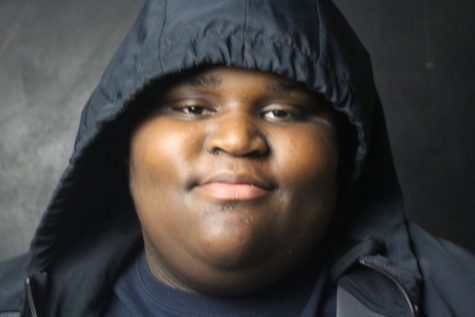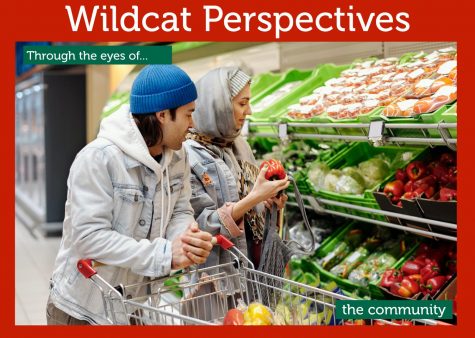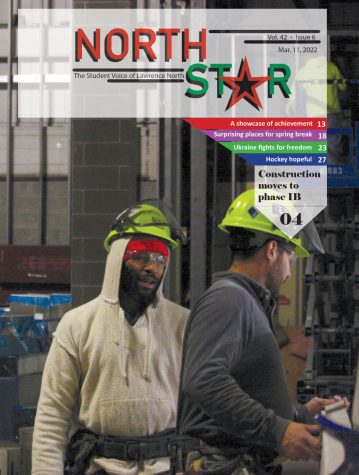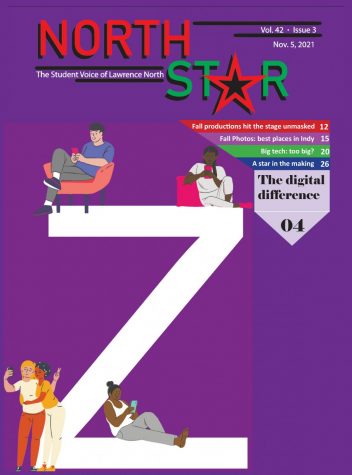COVID-19 impacts the community

On Thursday, March 12, Lawrence Township made the decision to close schools from March 13 to April 5 to help contain the spread of COVID-19. The district is following the guidance of the Marion County Public Health Department (MCPHD) in closing the schools. The hope is that by limiting the interactions people have with one another, the spread of the virus will be contained.
“It is our hope to support MCPHD in containing the virus and preventing further spread. This can be accomplished by practicing the guidance spelled out by the Center for Disease Control (CDC), which includes avoiding the convergence of large groups,” Superintendent Dr. Shawn Smith said in an email interview.
COVID-19 is a strain of the coronavirus. According to the Center for Disease Control, this virus can cause fever, shortness of breath, cough, and other symptoms in patients. While it can be as mild as a cold for some patients, for other patients it can be dangerous. Patients can experience extreme shortness of breath and pain in the chest that can be fatal if not treated immediately. The patients that experience the worst symptoms are elderly or people with previous medical conditions. A patient can be infected for two to 14 days before symptoms appear which is why the virus can continue to spread.
In order to contain the spread, many countries have issued quarantine procedures as well as limiting the number of individuals in one location at a time. These changes have affected everyone in different ways including these four examples.
Quarantine in China
The pandemic began in Wuhan, China in late 2019. Early on, Wuhan was the epicenter of the outbreak. However, the virus has continued to spread outside of China through travel. Since it originated, China has put in place quarantine measures to prevent further spread of the disease, especially for people who have recently traveled.
2014 LN graduate Laura Hinshaw is an English teacher living in Yangzhou, China. She has lived there since the fall of 2019. She experienced quarantine after she traveled recently.
“Right now, I am nearing the end of a two week quarantine that is being enforced on anyone who has traveled abroad during this time. I spent a few weeks in the Philippines and Cambodia, which luckily don’t have many cases and because of that, the government has allowed me to stay in my apartment during the quarantine instead of going to stay at a hotel with other quarantined people under government surveillance. During this quarantine, I have been required to keep a log of my temperature. I record my temperature twice daily and report it,” Hinshaw said in an email interview.
Hinshaw was not immediately quarantined when she got home, so she was able to experience some of the other security measures they have put in place. To limit the amount of people in the city at one time, everyone is given passes to leave their residence once every other day.
“Before my quarantine started, I had been given passes to show the guard at the complex gate and was allowed to leave the complex once every other day for necessities like groceries, and you must have your temperature checked upon reentering the complex,” Hinshaw said.
Most of the stores are shut down in China. However, the grocery store is open for people to shop if they are not presenting symptoms. Employees have to wear protective gear to make sure they don’t catch or spread the virus within the community.
“The grocery stores are not bad at this point. There’s plenty of food on the shelves and everything is well stocked. All grocery store employees are required to wear protective body suits as well as several face masks and a plastic face shield and gloves. People are not allowed to enter the grocery store unless they have a mask on and you must have your temperature checked at the door,” Hinshaw said.
Since the beginning of her quarantine, Hinshaw has not been allowed to leave her apartment, which makes it difficult for her to do her job. Fortunately, her school is doing eLearning, so she can teach classes online right now, but she is still not allowed to have any face to face interactions.
“My daily life has been hugely affected. I haven’t been outside in two weeks. Like I said, I am an English teacher, but classes are not in session so we are teaching our classes online now. I haven’t spoken to anyone in person, except my boyfriend who lives with me, in about two months now,” Hinshaw said.
On March 11, the World Health Organization (WHO) announced that COVID-19 will officially be recognized as a pandemic due to its increased spread across the world. According to a press conference made by WHO on March 13, there are now more than 132,000 cases in 123 countries around the world. Hinshaw believes that in order to help contain the spread, people need to self quarantine to limit their interactions with others.
“I highly advise everyone to begin their own self quarantine. You must practice social distancing. Remember you can have the virus for 14 days and not show symptoms. You can spread the virus during this time. Please do your part to contain this outbreak,” Hinshaw said.
Dealing with the outbreak in Italy
Carlotta Milanta, a former LN foreign exchange student, has experienced similar things living in Milan, a city located in the region of Lombardy, Italy. According to the Italian Ministry of Health, Italy has 24.7 thousand cases of COVID-19 and 13.2 thousand of those cases are in Lombardy. The government has implemented similar quarantine measures by closing schools and businesses, making everyone work online. For people who have stores and can’t just work from home, this means that they are going without pay because they are required to close their shop. If people need to leave their house for any reason, they must wear a mask.
“So now everybody has to stay at home and if you can work at home through smart working, that’s perfect. But like my dad, he works in a bank so he can’t do it. So if you have a job like a clothing shop, you can’t work from home, but you still have to close the shop. And also, you have to go around with the masks,” Milanta said in a phone interview.
All shops, businesses, churches, and parks have been closed in Milan except for the supermarket and pharmacy. The supermarket has instituted guidelines to limit the number of people in the store at one time.
“They didn’t close supermarkets of course. There can only be 10 people inside the place at a time. So there is a super long line [to get into the store]. You can only go in once someone comes out,” Milanta said.
Although this has majorly affected Milanta’s life, sometimes it is still hard for her to believe. She has not personally known anyone who has gotten sick, which makes it hard for her to understand why everything is happening.
“I mean, it feels like a movie. Sometimes you feel like since you don’t see it and personally I didn’t have anyone in my family who got sick. It feels like I’m not going to school; I’m at home, but I don’t really know why I’m doing all of this. If you look around, nothing has changed. You look around it and it’s like ‘everything is fine,’ but it’s not,” Milanta said.
To Milanta, the scariest part of dealing with the virus is not knowing when and how the pandemic will end. Since there hasn’t been a pandemic like this since 1918, no one has experienced something like this before which makes it difficult for anyone to handle.
“I think the worst thing is not knowing what is going to happen next. If I knew it’s only for three months, you can just plan it. I’m like a person that really needs to plan stuff. The scariest thing is that nobody knows. Usually you don’t know something and you ask someone older than you so they can give you some advice, but in this situation we are all the same,” Milanta said.
One of the main problems in Italy right now is that there is not enough space in the hospitals to care for all the infected patients and people who are sick with other illnesses. According to Lombardy’s top health official, Giulio Gallera, in an interview with Bloomberg, over 80% of the hospital beds in Lombardy are being used to treat patients infected with the COVID-19.
“Hospitals are in a really bad position right now because the virus needs this machine that gives you oxygen and there aren’ t enough places. There are a lot of foundations giving money to health care to build machines and give machines. They are closing most of the [hospital wings] to give more space to people with the virus because a big problem is that there isn’t enough space,” Milanta said.
Because of the overcrowding, health care officials have had to institute a set of guidelines for choosing which patient gets a bed when there is a limited number available. To Milanta, this is crazy because they are basically deciding which person is going to die.
“What really scared me the most was this message that was sent to all the doctors in Italy where there was this manual that explains with which criteria you should choose who needs to be saved and who’s not. If you have two people and you have one bed, you have to decide who’s going to get that bed and who’s going to die. It was crazy. It felt like war. We are really choosing who to save and who not to save. The situation is critical,” Milanta said.
Though the effects of the COVID-19 virus have been difficult for everyone, Milanta believes that it helps us gain a better perspectiveperspective of everyone else in the world. She believes this shows our commonalities and how we are all fighting in the same fight no matter where we are in the world.
“I feel like something like this really reminds us that it doesn’t really matter what country you are from, we’re all the same. The richest people can get sick the same way as the poorest ones,” Milanta said.
Cancelling Events
Many events such as March Madness, NBA games, concerts, Broadway shows and more have been canceled in the U.S. in efforts to stop the spread of the virus and to comply with safety measures like social distancing. Following the school cancellations in Marion county, all extracurricular activities and events have been cancelled or postponed as well.
Sophomore Stuart Rowland, along with other performing art students, was supposed to go on a school trip to Disney World. Rowland decided not to go on the trip due to some health conditions when the number of COVID-19 cases began to rise in the US. Since then, the performing arts department has cancelled the trip for the safety of all students. According to the performing arts administrative assistant Jennifer Jensen, they are working with Music Travel Consultants to find solutions to possibly reschedule the trip.
“I have asthma which puts me at extreme risk for serious symptoms from the virus and asthma attacks of increased severity,” Rowland said in an email interview.
Another factor in going into Rowland’s decision was that his dad is a doctor. Due to guidelines put in place, if Rowland were to travel anywhere, his dad would have to be quarantined and not allowed to practice for two weeks once Rowland returned home.
“My father is an MD who practices pediatric psychiatry at CRG (Childrens’ Resource Group) who follows the CDC’s rules of best practice, a rulebook for ethical practice created by the CDC, where one of its rules state that if a family member of a practitioner has had confirmed exposure to the COVID-19 virus they have a duty to quarantine themselves for a minimum of 14 days, halting all practice during that time,” Rowland said.
Exchange Student program cut short
Due to health and safety concerns, many countries are now requiring their foreign exchange students to come back to their home country. Senior Paulina Dreja, a foreign exchange student from Germany, had to return home on Monday, March 16 due to a decision from the German government.
“It’s just that I got a scholarship from the German government and it’s kind of an exchange between the US and Germany so they send the US exchange students back home and now they want us to leave too. But not all the exchange students, just those who got a scholarship,” Dreja said in an email interview.
Dreja is disappointed that she has to return home early and that she does not get to finish the school year here. She is upset that the government felt that this was the best way to respond to the issue.
“[I’m going to miss] everything. I just don’t want to leave, especially now that I started playing lacrosse. I am just so angry and I think the German government just screwed up,” Dreja said.
Lawrence Township takes initiative
The district will be doing eLearning from March 16 to March 26 in place of school days so students do not have to make those days up in the summer. Materials will be on Seesaw for elementary students and Canvas for middle school and high school students. For families who do not have access to the internet, printed copies of eLearning materials will also be made available to those who need them for the weeks of March 16 and March 23 and can be picked up at the school on the designated day.
“It is important that we work to minimize lost instruction time. While the Governor did issue a 20-day waiver, the local and national Coronavirus response is evolving, and it is important that we use those days with caution,” Dr. Smith said.
To help families who cannot afford food, grab and go meals consisting of a five day supply of breakfasts and lunches will be available to all students at no cost at multiple sites across the district on both March 16 and March 23 from 11 a.m. to 1 p.m.
“It is important that we follow the guidance of the MCPHD regarding this public health emergency. We ask for the patience of our families and staff as we navigate this unknown territory and stand ready to serve our community as best we can given the current circumstances,” Dr. Smith said.
To follow updates on the district’s response to COVID-19, go to http://www.ltschools.org/announcements/coronavirus-preparedness-(1)











